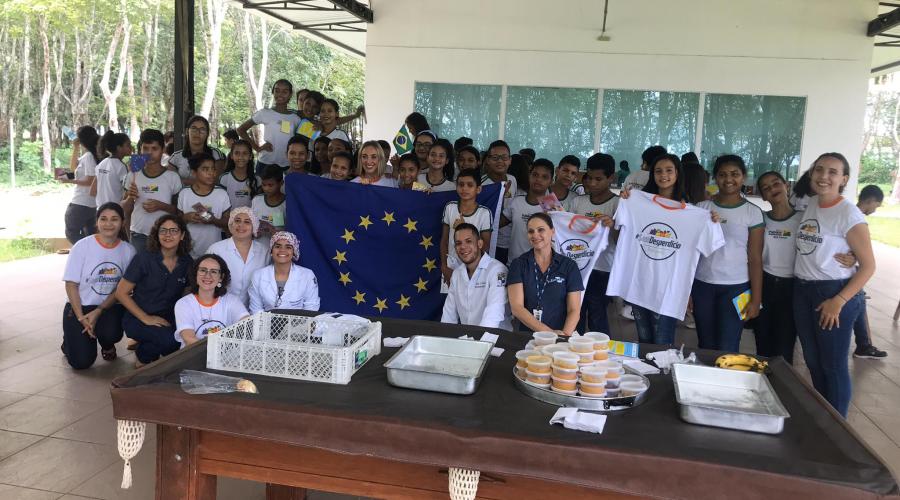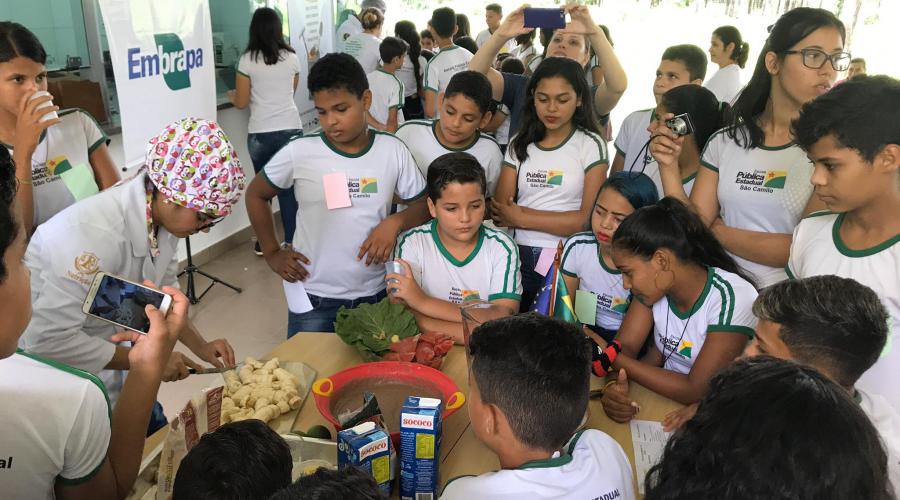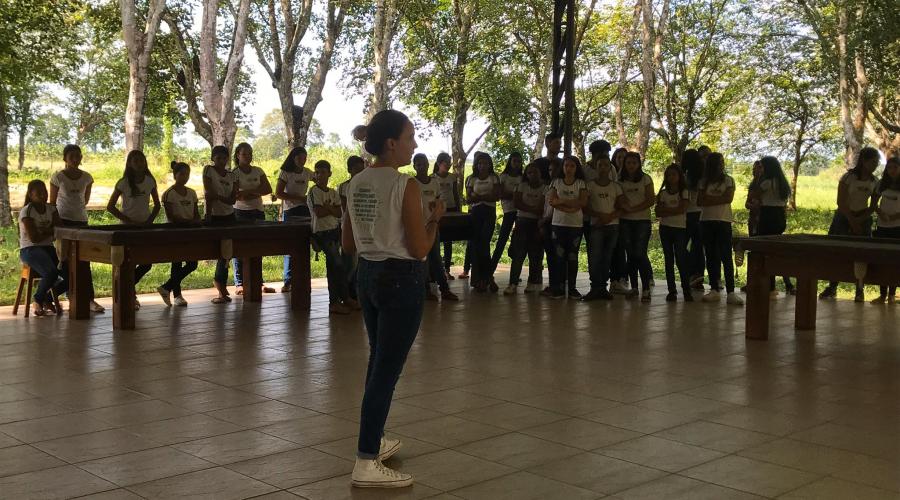2019-12-11
Students join effort against food waste in Acre State
Seventh grade students from São Camilo Elementary School participated in an event at Embrapa Acre, in the city of Rio Branco, to address food waste. The event, led by the Embrapa & School Programme, included the preparation of recipes using food products in their entirety, with the participation of nutritionists from the Federal University of Acre (UFAC). The students were also presented with some educational games and received a special edition of the Brazilian comic book Monica's Gang with tips to avoid food waste, produced in partnership with the Mauricio de Sousa Institute.
On that occasion, the education guide for teachers about #NoFoodWaste was also launched with different practical activities and tips on the subject. Some other group activities were also part of the event agenda with the youth. These initiatives are the result of a partnership between Embrapa, WWF and the European Union, under the Sector Dialogues Facility, a cooperation instrument aligned with the Sustainable Development Goal aimed at reducing by half global food loss and waste by 2030.
"This effort by the Embrapa & School Program is also part of the project called ‘Dialogues on food waste: raising awareness among youth of sustainable consumption and climate change,’ which focuses on communication for behavioural change," explains Gustavo Porpino, coordinator of the initiative and communication analyst at the Embrapa Secretariat of Innovation and Business (Brasília/DF).
Research
In the first phase, between 2017 and 2018, the "Dialogues on food waste" project conducted nationwide research to learn about consumption habits and food waste in Brazilian households. The results show that 91.7 lbs of food are wasted per person each year. Every day, each Brazilian household throws away 0.77lbs of food, totalling 283.9 lbs of food a year that end up in waste containers.
The study also showed that rice (22%), beef (20%), beans (16%) and chicken (15%) are the most wasted foods, and part of the daily meals of the majority of the population. "Rice and beans, which head this sad statistic, are two of the main ingredients on a menu considered ideal for supplying the nutrients required by the human body," Porpino says.
To try to explain these distortions, the research also found that behind these numbers there are behavioural factors such as the need for abundance, at different stages of consumption - from purchase to preparation. Sixty eight percent (68%) of survey respondents confirmed the urge to buy large quantities to keep the pantry full, and 52% said they thought having a surplus was important. More than 77% of the respondents admitted their preference for always having fresh food on the table, which leads to 56% of them cooking at home two or more times a day, contributing to the idea that "the more, the merrier".
Source: Ascom Embrapa AC
Last news
-
23/10/2020
.jpg) Study addresses regulatory and governance challenges to decarbonize and digitalise the energy sector
Study addresses regulatory and governance challenges to decarbonize and digitalise the energy sector
-
16/10/2020
.jpg) Joint press release - 8th EU-Brazil High Level Political Dialogue on the Environment Dimension of Sustainable Development on 16 October 2020 (virtual meeting)
Joint press release - 8th EU-Brazil High Level Political Dialogue on the Environment Dimension of Sustainable Development on 16 October 2020 (virtual meeting)
-
03/08/2020
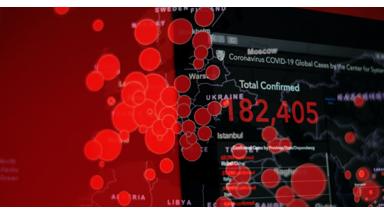 Webinar discusses the importance of data protection in the COVID-19 pandemic
Webinar discusses the importance of data protection in the COVID-19 pandemic
-
22/05/2020
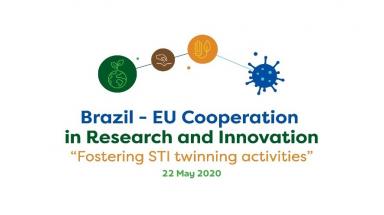 European Union and Brazil decide to cooperate in projects to fight COVID-19
European Union and Brazil decide to cooperate in projects to fight COVID-19

